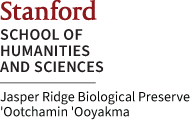Vannette RL, T Fukami. 2016. Nectar microbes can reduce secondary metabolites in nectar and alter effects on nectar consumption by pollinators. Ecology 97(6):1410-1419
Secondary metabolites that are present in floral nectar have been hypothesized to enhance specificity in plant–pollinator mutualism by reducing larceny by non-pollinators, including microorganisms that colonize nectar. However, few studies have tested this hypothesis. Using synthetic nectar, we conducted laboratory and field experiments to examine the effects of five chemical compounds found in nectar on the growth and metabolism of nectar-colonizing yeasts and bacteria, and the interactive effects of these compounds and nectar microbes on the consumption of nectar by pollinators. In most cases, focal compounds inhibited microbial growth, but the extent of these effects depended on compound identity, concentration, and microbial species. Moreover, most compounds did not substantially decrease sugar metabolism by microbes, and microbes reduced the concentration of some compounds in nectar. Using artificial flowers in the field, we also found that the common nectar yeast Metschnikowia reukaufii altered nectar consumption by small floral visitors, but only in nectar containing catalpol. This effect was likely mediated by a mechanism independent of catalpol metabolism. Despite strong compound-specific effects on microbial growth, our results suggest that the secondary metabolites tested here are unlikely to be an effective general defense mechanism for preserving nectar sugars for pollinators. Instead, our results indicate that microbial colonization of nectar could reduce the concentration of secondary compounds in nectar and, in some cases, reduce deterrence to pollinators. link to publication



